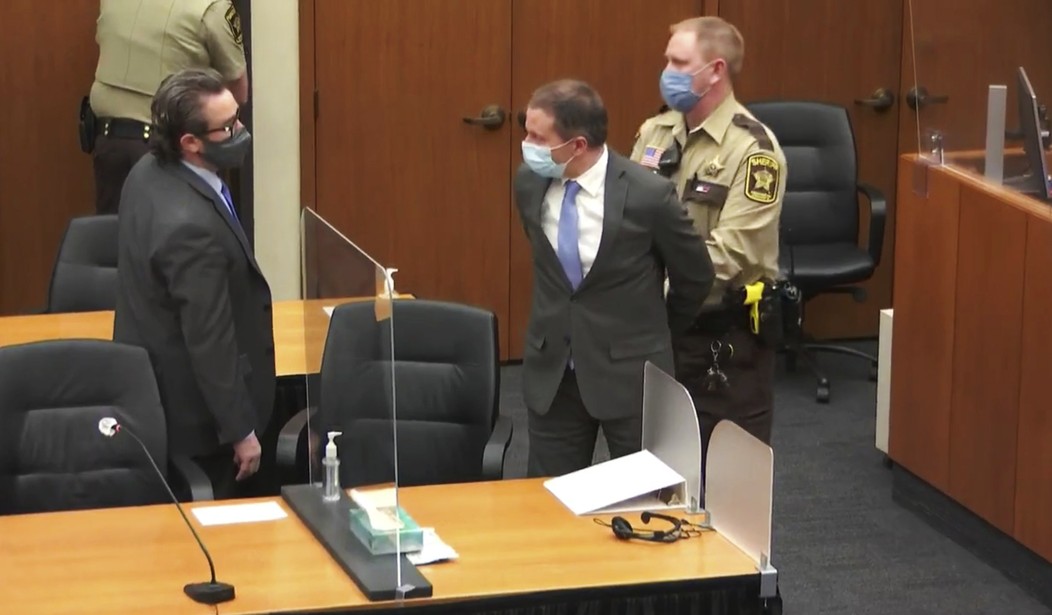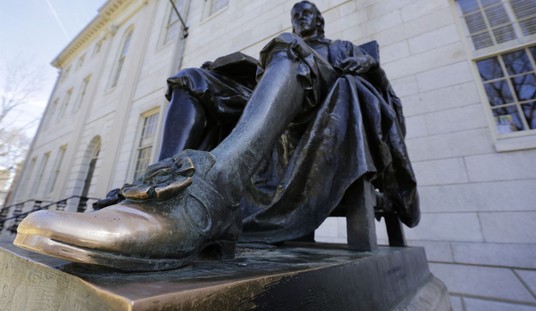A juror who participated in the trial of former police officer Derek Chauvin gave his account of how the jury decided to convict him of all three counts in connection with the killing of George Floyd. Ever since the verdict was announced, the trial has become the subject of national debate.
Many on the right argued that it was the threat of riots, not the prosecution’s case, that motivated the jurors to convict Chauvin. However, according to the latest juror to speak out on the decision, this assertion is inaccurate.
Brandon Mitchell, a 31-year-old high school basketball coach also known as juror No. 52 recently participated in an interview with the Wall Street Journal’s Joe Barrett and Deena Winter in which he described how the jury came to its decision. The Journal explained:
The jury got the case on a Monday evening after a full day of closing arguments. Once they had selected a foreman, they took an initial vote, with 11 of the 12 jurors ready to convict Mr. Chauvin of manslaughter. The lone holdout told the group that the juror needed more time, Mr. Mitchell said, so the jurors had a chance to explain why they felt the charge fit.
The authors added: “By the time it was the holdout’s chance to speak, the juror had already come around, he said.”
The article notes that the jury’s vote on third-degree murder proceeded much in the same way that it did for manslaughter. The authors wrote:
Their first vote on third-degree murder was again 11 to 1, with the same holdout, Mr. Mitchell said. This time, they called up testimony and different pieces of evidence. Jurors gave their own interpretation of the legal issues required to approve the charge. They also created their own timeline, relating various events to when Mr. Floyd stopped breathing.
It took 3½ hours to reach a consensus on third-degree murder, he said. By the time they discussed the second-degree charge, he said it only took another 20 to 30 minutes.
Mitchell told the Journal that each juror had their own opinions on exactly when Chauvin violated the law, but they “all agreed at some point that it was too much.”
Mitchell also noted that he felt a level of sympathy for Chauvin after the verdict was read and he was handcuffed. “He’s a human too,” he said.
“I almost broke down from that,” Mitchell continued. “We decided his life. That’s tough. That’s tough to deal with. Even though it’s the right decision, it’s still tough.”
Mitchell also addressed the notion that outside influences motivated the jury’s decision. He stated that while he saw news reports about the protests last year, he did not believe other jurors were influenced by the unrest.
“The human aspect of it, in terms of watching somebody die every day, it outweighs that 10-fold,” he said.
In an interview with ABC’s “Good Morning America,” Mitchell repeated his contention that the country’s racial climate played no part in the verdict. “Those things are so secondary because, throughout the trial, you’re watching somebody die on a daily basis so that stress alone is enough to take your mind away from whatever is going on outside of the four walls of the courtroom. That wasn’t even something that was in any of our minds,” he told host Robin Roberts.
The basketball coach stated he had not watched the entire bystander video of the incident before the trial and indicated it “was the most powerful evidence in the trial.”
He also said the testimony of pulmonologist Dr. Martin Tobin as to how Chauvin and the other officers on the scene restricted Floyd’s airflow, thereby causing his death.
“He was the most excellent expert witness they could have had. He just solidified everything because he spoke so scientifically but elementary,” he said.
Conversely, Mitchell explained that he and his fellow jurors did not find the defense’s witnesses, particularly Dr. David Fowler, to be persuasive.
When Fowler was coming to the stand, I thought he might be able to possibly prove something else,” he said. “But he didn’t really tell me anything that I thought was concrete.”
“His contention that carbon monoxide poisoning may have killed Mr. Floyd didn’t fly with the jury,” according to the Journal. “I don’t think anybody paid that any mind,” he noted.
Lisa Christensen, an alternate juror who also believed Chauvin was guilty of all three counts also said she did not believe the jury was swayed by the threat of civil unrest. During an interview, she said:
I would have voted guilty. However, at the end, the judge did read us the rules for deliberation, but it was quick, and I could not absorb it. I would have said guilty on some level. After I was excused, I did not look at the jury instructions any longer. I do not know how hard that process was, but I feel like Chauvin is responsible for Mr. Floyd’s death.
Some have speculated that the notion that it was the civil unrest and racial strife that prompted the verdict could result in Chauvin winning an appeal and possibly going free or serving a lesser sentence. Others argued that some of Mitchell’s comments could potentially impact the appeal process as well.
During a conversation on the “Get Up! Mornings” show with Erica Campbell, Mitchell was asked what message he would give people about “saying yes to jury duty.”
He responded: “I mean, it’s important if we wanna see some change, we wanna see some things going different, we gotta get out there, get out into these avenues, get into these rooms to try to spark some change.”
He added, “Jury duty is one of those things. Jury duty. Voting. All of those things we gotta do.”
Still, it seems unlikely that these comments will result in Chauvin avoiding more prison time; this alone will not prove that the jury’s decision was not based on the facts of the case. Moreover, it will be difficult to prove that outside forces prompted the verdict.
It seems the least unlikely outcome might be overturning the second-degree unintentional murder charge, but even then, Chauvin will still not go free. The former police officer is scheduled to be sentenced on June 25 and could face up to 40 years in prison.














Join the conversation as a VIP Member